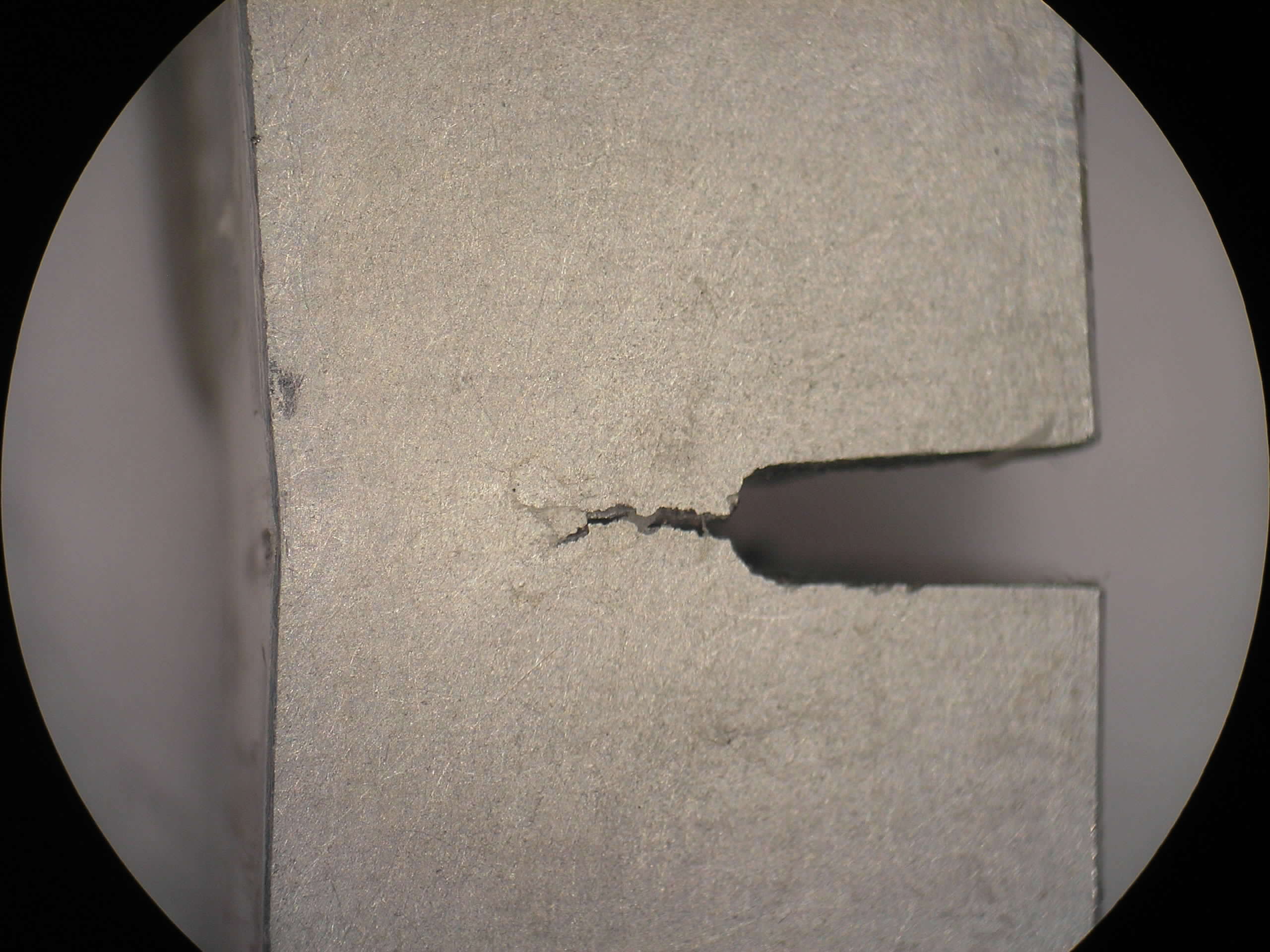ISO 25219 Mixed Mode Fracture Testing of Adhesives
The ISO 25219 standard provides a framework for conducting mixed mode fracture testing, which is critical in assessing the durability and reliability of adhesives. This type of testing evaluates how an adhesive behaves under complex loading conditions that simulate real-world stress scenarios. Understanding these behaviors helps in optimizing adhesive formulations and ensuring product quality.
In this context, "mixed mode" refers to a combination of tensile and shear stresses acting on the adhesive bondline, which is often encountered during the use or installation of adhesives in various applications such as construction, manufacturing, and aerospace. The standard covers static tests that are typically conducted at room temperature but can also be performed under controlled thermal conditions.
During testing, specimens are subjected to a combination of uniaxial tension and shear loading using specially designed fixtures. This approach allows for the evaluation of how the adhesive responds when subjected to stresses that occur in different directions simultaneously. The ultimate goal is to determine the fracture toughness of the adhesive, which is an important indicator of its resistance to crack propagation.
The testing process involves precise specimen preparation and careful calibration of equipment. Specimens are often prepared as thin plates or strips with a bonded joint between two materials that simulate typical application scenarios. The choice of materials for these specimens can vary based on the specific requirements of the test, but they must be compatible with the adhesive being tested.
The testing apparatus used in this procedure includes universal testing machines capable of applying both tensile and shear forces accurately and consistently. These machines are typically equipped with software that allows for real-time data acquisition and analysis during the test. The results provide detailed information about the adhesive's behavior under mixed mode loading, including its fracture toughness and energy absorption capacity.
Post-test analysis is crucial in interpreting the results. It involves examining not only the numerical values derived from the testing but also visual inspection of the fractured surfaces to identify any patterns or characteristics that may indicate specific failure modes. This comprehensive approach ensures a thorough understanding of the adhesive's performance and helps in identifying areas for improvement.
ISO 25219 is widely recognized as an authoritative standard within its field, providing a standardized methodology that enhances comparability and reliability across different testing facilities worldwide. By adhering to this standard, laboratories ensure consistent and accurate results, which are essential for maintaining high-quality standards in industries where adhesives play a critical role.
- ISO 25219 is applicable to various types of adhesives including structural adhesives used in aerospace, automotive, and construction sectors.
- The standard also covers non-structural adhesives used in packaging, electronics, and general manufacturing applications.
Eurolab Advantages
At Eurolab, we pride ourselves on offering comprehensive services that meet the highest international standards. Our expertise in ISO 25219 testing allows us to provide accurate and reliable results that are essential for decision-making processes within your organization.
We employ highly skilled technicians who are well-versed in the nuances of this complex testing procedure, ensuring that every step from specimen preparation to final analysis adheres strictly to ISO 25219 guidelines. Our state-of-the-art facilities equipped with advanced instrumentation ensure precision and repeatability, delivering consistent results time after time.
Our commitment to quality extends beyond just meeting the requirements of the standard; we go above and beyond by providing detailed reports that offer insights into both quantitative data and qualitative observations. This holistic approach helps you make informed decisions about product development, material selection, or supplier evaluation.
In addition to our technical capabilities, Eurolab offers exceptional customer service tailored specifically to your needs. Whether you require one-off tests or ongoing support for regular quality assurance checks, we are here to assist you every step of the way. Our team is available round-the-clock via phone, email, or online chat to address any queries or concerns promptly.
By choosing Eurolab as your partner in ISO 25219 testing, you can rest assured knowing that your samples will be handled with utmost care and professionalism. We understand the importance of timely delivery and strive to meet all deadlines without compromising on accuracy or integrity.
International Acceptance and Recognition
- The ISO 25219 standard is recognized globally by major standards bodies such as ASTM, EN, IEC, and others. This widespread adoption underscores its relevance and applicability across diverse industries.
- Countries like the United States, Europe, Japan, China, and numerous other regions incorporate this standard into their national regulations for adhesive testing.
- Many international organizations involved in standards development consider ISO 25219 when setting their own guidelines related to adhesives.
The consistent acceptance of ISO 25219 across different geographical areas and industries ensures that the results obtained from this testing method are universally applicable. This consistency facilitates seamless collaboration between manufacturers, suppliers, regulators, and end-users who rely on these tests for quality assurance purposes.
Environmental and Sustainability Contributions
The ISO 25219 standard plays a crucial role in promoting sustainable practices within the adhesive industry. By ensuring that adhesives perform reliably under mixed mode loading conditions, it helps reduce waste associated with failed bonds or premature failures.
When selecting materials and suppliers based on rigorous testing like ISO 25219, manufacturers can be confident they are choosing products that will contribute positively to environmental sustainability. Additionally, adherence to this standard encourages innovation in developing more durable adhesives which ultimately leads to longer-lasting structures and products.
Furthermore, by reducing the need for frequent replacements due to failures caused by subpar materials or improper installation practices, ISO 25219 contributes significantly towards minimizing resource consumption and waste generation throughout product lifecycles.





